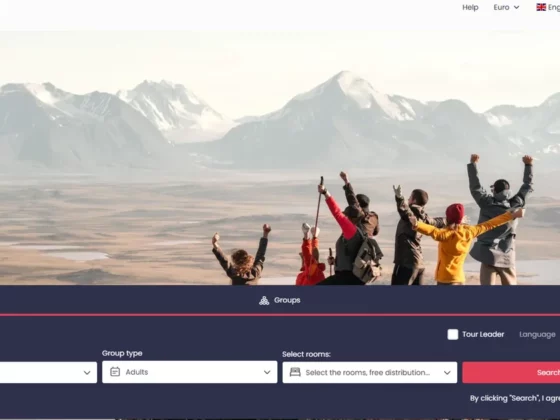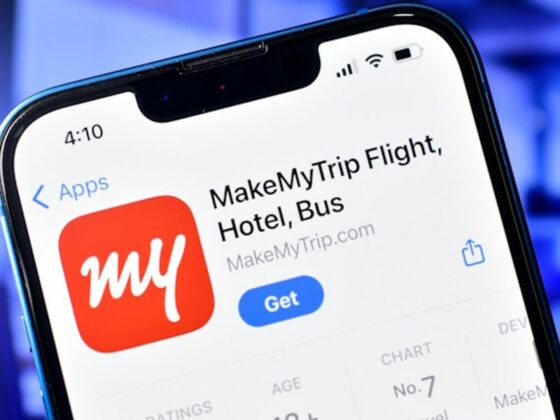
Wolfgang Emperger, Senior Vice President and General Manager – Europe, Africa and UK & Ireland at Shiji Group, shares his insight on the current state of hotel technology in 2023. Read on to learn more!
In my work at Shiji with our various teams, partners, and clients around the world, as much as 60 to 70% of my time is spent traveling and staying at hotels. In those travels, I often hear top-level executives at major hotels, praising themselves for their great offers. In all honesty, I’m not sure they’re so great. I often wonder if they stay in their own hotels, as what they claim to offer simply doesn’t correspond to reality– even the basics are not done right. For me, a lot of it comes down to technology supporting everything else. With that in mind, I’d like to share what I see as the current state of hotel technology in 2023.
When Technology Becomes a Bandaid
A hospitality business may come to us wanting to implement new technology, meanwhile, the core parts of the tech stack are thirty years old. It’s crucial that these core parts are addressed first, rather than trying to patch in new solutions and Frankenstein-ing them.
Building or upgrading the tech stack of a hotel is similar to building a house: if your foundation is fragile, you can build on top of it, but it will crumble at some point; then you’ll need to build a new house from scratch, as you can’t work with a faulty foundation.
Let’s illustrate this point with mobile check-in. Too many players still treat it simply as a pre-registration on an app, which does nothing but provide a pre-filled form that is called up once the guest reaches the property. The guest meanwhile still needs to queue up for their turn at reception. While it is great that hotels are thinking of different solutions for improving the experience, it is utterly frustrating that this is their whole digital check-in program, for as a guest, having this kind of “digital” option often turns out to be an even worse experience than the traditional alternative. Going through the digital check-in steps creates the expectation of a faster, simpler arrival process, but quickly turns into a disappointment when the need to stand in line for the same procedures isn’t eliminated.
Make Technology Work for You
This year should see many hotels using technology to enhance their offering. As mentioned, it is first necessary to take a step back and evaluate the technology platforms already in place before strategically building upon them. We saw this happen very recently, with the COVID-19 pandemic forcing everyone to quickly jump into digital in new ways. New startups were popping up like mushrooms and building mobile apps that were very quick to market, causing hotels to surf the “contactless anything” wave a bit like it was Y2K. Everyone thought they needed a mobile app and didn’t look at the holistic guest journey, instead bandaging but a small piece of that journey and ultimately wasting time and money.
Key Takeaways
- Tech will move things increasingly into the hands of guests, and we must provide complete journey solutions.
- Examine your guest journey and use technology that will help you enhance it, don’t just buy into the latest hype.
- Tech trends such as the metaverse, decentralized identity, hybrid meeting solutions, and the cloud all have proven use cases in hospitality, but a more targeted investment is still needed to make them more appropriate.
It’s not surprising that this didn’t fix anything, because the whole circle needed to be closed – the guest experience leads but has to be followed with the right technology. If we learned anything from this experience, it was to not let ourselves be fooled by the latest hype but rather to look at the specific guest journey of your property and try to offer solutions that will actually be relevant to your guests.
I recently experienced this at a budget two-star hotel in Amsterdam, where I had to leave very early for a flight and received a prompt from the hotel the night before to do my check out. It took about 30 seconds to type in my email and company’s address to be used on the invoice for expensing purposes, and the following day, while I waited for my cab to arrive, the receptionist used those few minutes to get me a coffee instead of fumbling with an invoice. The system had done its job, and when I was sitting in my cab, en route to the airport, coffee in hand, seeing the invoice arriving in my email inbox, I reflected on what a great experience it had been. The staff member, because the technology was deployed in the right way, was able to provide me with service that enhanced the final moment of my guest journey. It was such a small thing, but one that left a pleasant last impression and also reduced the staff member’s workload.
The Age of BYOD – Bring Your Own Devices
This year will also be all about giving the guests choices. Guests have become accustomed to having everything at their fingertips, using their mobile phones and tablets, and QR codes are a big part of this. It does depend, however, on how they are used: will a QR code placed on a table simply download a PDF menu onto the guest’s device and leave them stranded, trying to flag a staff member to place the order, or will it open a portal where it is possible to order and make a payment right away, making it a streamlined experience for the guest?
In the current labor market, it is overkill, and quite frankly, sometimes even impossible, to have staff in certain parts of the hotel at all times, such as in the lobby, lounge areas, or during meal times. Using technology the proper way eliminates this need, and provides an impeccable guest experience with very limited staff. It also makes it possible to schedule staff at key service timings, for example, having a waiter or bartender at the bar in the evening, when it is more important, allowing the option to go for interaction and full service or fully digital self-service.
The power is now in the hands of the guests, but some hotels are not yet fully optimizing the digital experience. The full journey needs to be catered for, from ordering right through to payment, and that can be quite complex in certain parts of the world when it comes to fiscal and legal regulations and compliance. Still, it is crucial for meeting guests’ expectations.
Current Tech Trends and Their Hotel Implications
To help you get a more detailed understanding of the state of hotel technology, what follows are current tech trends that, in my view, are the most worth watching and potentially adopting for hospitality businesses in 2023.
The Cloud
Cloud is old news to anyone in the tech industry, but only 22% of enterprise companies in the world have moved their technology to the cloud.
The question of moving completely onto the cloud still remains a big one, though, and I believe the hospitality industry needs to work together to elevate their collective tech and fully do away with legacy systems, bringing them into this new era. There is still a lot of fear from properties and investors regarding moving to the next generation of systems, and, I believe this is mostly unwarranted. Moving the entire tech stack ensures that certain risks are mitigated, such as PCI compliance and payment gateways. Having surviving legacy systems – including those that might no longer be supported – increases the likelihood of exposing the data you do have on the cloud to threats, and makes the whole organization vulnerable.
Large Language Model AI
We’re at the beginning of a very different model for computing and technology. For the first time, one can actually “talk” to a computer in normal language and it can interpret the information and conversationally do things. We don’t know everything it will change yet, but a lot of things will change. Searching for a hotel is one of them “Find a hotel near Google’s office in London with quiet rooms for less than $200 on Monday night” is not a complex search. But it totally changes how we search. This will get integrated into all technology products at all levels for guests and for hotel staff. I think in a few years there will be language-based commands for data analytics, business intelligence tools, and maybe even things like checking into a hotel room.
The Metaverse
The metaverse is also a big topic, especially for those of us in the travel and retail spaces. It was initially misinterpreted as something clunky, where everyone runs around wearing big goggles, and where you don’t go on vacation anymore but sit at home and think that you’re at the beach or get inside your bathtub to pretend that you’re in the sea. That’s not the metaverse, and not how it can help our industry. To me, the way it can be used in hospitality is really more about simulating the experience at property A and property B to compare and make informed decisions before booking.
However, from my perspective, this technology still needs to advance much further to be utilized this way. It needs to be natural, it needs to be an immersive experience that would allow, for instance, a family to sit on their couch and look at and experience hotels together when choosing a trip destination. As it is now, the space is still too fragmented, with providers not being able to offer more value just yet, and there is a large possibility for hotels to make bad investments and go in the wrong direction.
Hybrid Meetings
Yet another area that grew in popularity due to the global health pandemic was hybrid meeting environments. In the last few years, meetings were largely conducted remotely, and as life returns to normal, so will the need for getting together to work and discuss projects. Granted, it won’t go back to how it was before when everybody was required to fly in for different meetings all the time, but things will settle on something of a hybrid model. Perhaps fewer people will participate in person, maybe even at a lower frequency, with some members able to provide support and attend remotely. I don’t think hotels have invested enough yet in meeting technologies and the processes are still very cumbersome. Big meetings will surely come back, but there’s also plenty of room for hybrid activity in the market.
Decentralized Identity
Last but not least, there are already industry initiatives for integrated systems that cooperate amongst various vendors in the travel and hotel space. One such project proposes a decentralized global profile to make individual digital footprints for each guest, which will include someone’s personal information and can be used for flight and hotel bookings, trumping the need for separate hotel and airline brand apps. Needless to say, this simplifies usage for guests and has the potential to become a powerful tool, provided that issues with security and information interfacing are attended to. It is technology still in its infancy, but that offers big promises for the future of travel.
The State of Hotel Technology Today
Between the post-pandemic boom in travel to the maturation of some technology and the proliferation of other new technology, 2023 could shape up to be an inflection point for our industry. Today, many technologies are converging to meet guest behaviors and expectations, transforming the current state of hotel technology into something that takes the industry as a whole into the next stage of evolution.






